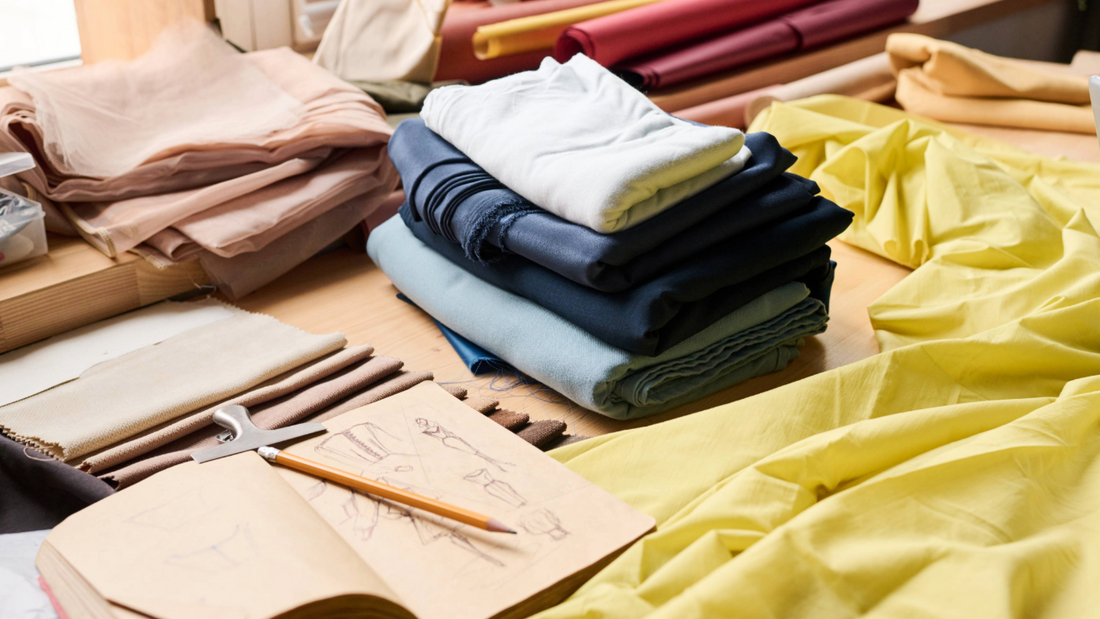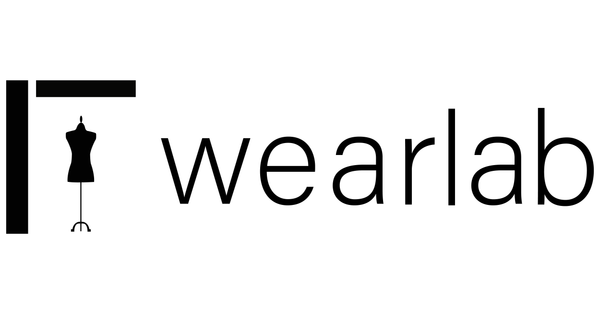
How to Start Your Own Clothing Brand: Lessons from Local Manufacturing
Share
Starting a clothing brand can be a thrilling but challenging venture, particularly when committing to local, ethical production. In my journey to establish a successful fashion business, I recognized that staying local—especially by working with factories in Canada—could help me maintain high standards, exercise greater control, and save on unexpected costs. This experience eventually inspired me to launch my own design and production studio, WearLab, where I aim to help other brands grow while keeping their values at the forefront. Here’s what I learned about why choosing local production can be the key to a startup’s success:
1. Full Control Over Production
One of the most significant benefits of local manufacturing is the ability to make decisions in real-time. When production is nearby, you can address challenges on the spot and ensure every step aligns with your brand’s vision. I could inspect each stage of production, make adjustments as needed, and guarantee quality before the product reached customers. This level of control isn’t as easily achievable with overseas production, where communication delays and limited visibility can lead to costly surprises.
Key takeaway: Having hands-on access to the production process enables you to maintain your brand standards, control quality, and respond quickly to any issues that arise.
2. Efficient Sampling Process
The sampling process is essential for creating a successful product, especially when starting a clothing brand from scratch. Producing locally often allows for quicker sampling rounds, so you can test your designs and adjust them with less time and money spent. It’s true that producing in North America may come at a higher per-sample cost, but when you’re able to approve designs after just a few rounds, you can avoid the endless back-and-forth that often happens with overseas manufacturers.
This efficiency is a game-changer for startups, as it means products get to market faster with fewer resources wasted. Moreover, when sampling locally, you’re more likely to get the exact fit, construction, and finish that you envisioned for your brand—no compromises necessary.
Key takeaway: The speed and accuracy of local sampling save time and money, making it easier to create a product you’re proud of without the need for endless revisions.
3. Quality Over Quantity in Fabric Sourcing
Local sourcing can sometimes feel limited, but it has real advantages. By purchasing locally, I had the opportunity to evaluate the fabric hands-on, checking for quality, stretch, feel, and even how it responded to washing. When you go local, you don’t need to purchase 1,000 meters of fabric upfront; instead, you can buy in small batches, test the material, and only order more when you’re confident it’s the right fit for your brand.
Starting out, it’s important to prioritize quality over quantity. Smaller fabric quantities mean lower risk, less financial commitment, and fewer issues with excess inventory. For example, if you choose a fabric that turns out to shrink or fade after washing, local sourcing allows you to pivot quickly without dealing with a bulk order.
Key takeaway: Sourcing fabric locally provides better quality control and eliminates the need for over-commitment. This approach allows startups to make data-backed decisions before moving to larger-scale production.
4. Flexibility for Startups
Being a startup clothing brand requires flexibility to experiment with various designs, materials, and approaches until you identify what resonates with your customers. Local production provides the adaptability to try out new styles without the heavy commitment required by international production runs. This was essential for me in my early stages, as it enabled me to experiment with different styles, colorways, and materials, slowly building a core collection based on what worked best for my audience.
By working with local manufacturers in Vancouver, I could easily adjust my production plans, update styles, and experiment with small runs without being locked into large orders. This flexibility kept my brand agile and customer-focused, something every startup needs as they navigate a dynamic industry.
Key takeaway: Local manufacturing offers startups the flexibility to explore and refine their collections without overcommitting, minimizing financial risk while allowing for creative growth.
Why Local Manufacturing Is Worth the Investment
The benefits of local production go far beyond mere convenience. Keeping production close to home offers peace of mind, saves time, and prevents potential communication issues that can occur with overseas suppliers. Yes, it can be more expensive, but when you look at the big picture, the cost savings of producing locally can be substantial, particularly when factoring in shipping costs, sample iterations, and potential errors from long-distance communication.
Choosing to produce locally supports your brand’s commitment to quality, sustainability, and ethical manufacturing, values that resonate with today’s conscious consumers. Customers are increasingly choosing brands that prioritize ethical practices, transparency, and eco-friendly processes, so adopting a local production model can even give you a competitive edge.
Building Your Brand Locally: A Game-Changer for Startups
Starting a clothing brand with a focus on local manufacturing and ethical production may seem challenging, but the benefits can make a huge difference. Here are a few final takeaways for new brands considering a local production approach:
- Control and Quality: Maintaining direct oversight throughout production helps ensure quality, authenticity, and alignment with your brand’s vision.
- Faster Sampling: Testing samples close to home allows for faster, more reliable iterations and reduces the chance of costly mistakes.
- Flexible Sourcing: Small-batch sourcing keeps costs down while offering hands-on quality control, making it ideal for brands with limited resources.
- Agility and Adaptability: By staying local, you can respond quickly to feedback, allowing you to refine products and cater to customer needs.
With these steps, you’re not just building a clothing brand; you’re laying the foundation for a business that stands for quality, ethical values, and thoughtful, intentional growth. By keeping production local, you’re setting your brand up for long-term success, creating products you can be proud of, and establishing a business model that will resonate with both you and your customers.
Conclusion Starting a clothing brand requires smart decision-making, especially when it comes to production. Local manufacturing provides a pathway to build your brand with integrity, flexibility, and quality. As a startup, your ability to respond quickly, ensure quality, and make financially savvy choices will be crucial to your brand’s success.
By considering these strategies and prioritizing local production, you’ll not only save money but also create a brand that reflects your values and commitment to sustainable practices. Embracing a local approach sets the stage for a brand that’s resilient, customer-focused, and well-prepared to navigate the challenges of the fashion industry.
If you’re ready to start your own brand and need support, let’s connect. At WearLab, we’re passionate about empowering startups to grow with a solid foundation—contact us today to learn more!

1 comment
Hi. I read your article on starting a clothing brand in vancouver. I am curious about the local manufacturers you work with and how you get in touch with them?
Best,
Colin